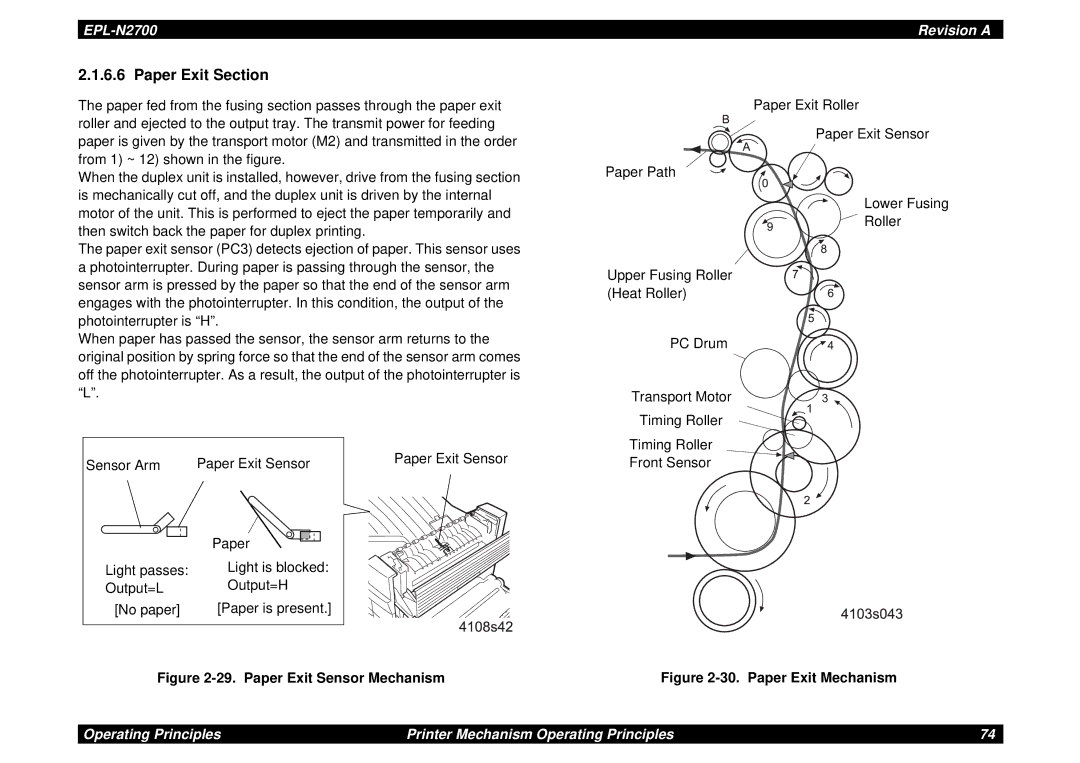
| Revision A |
2.1.6.6 Paper Exit Section
The paper fed from the fusing section passes through the paper exit roller and ejected to the output tray. The transmit power for feeding paper is given by the transport motor (M2) and transmitted in the order from 1) ~ 12) shown in the figure.
When the duplex unit is installed, however, drive from the fusing section is mechanically cut off, and the duplex unit is driven by the internal motor of the unit. This is performed to eject the paper temporarily and then switch back the paper for duplex printing.
The paper exit sensor (PC3) detects ejection of paper. This sensor uses a photointerrupter. During paper is passing through the sensor, the sensor arm is pressed by the paper so that the end of the sensor arm engages with the photointerrupter. In this condition, the output of the photointerrupter is “H”.
When paper has passed the sensor, the sensor arm returns to the original position by spring force so that the end of the sensor arm comes off the photointerrupter. As a result, the output of the photointerrupter is “L”.
Sensor Arm | Paper Exit Sensor | Paper Exit Sensor |
|
|
|
| Paper |
|
|
|
|
|
|
|
|
| |
|
|
|
|
|
| |
|
|
|
|
|
| |
Light passes: | Light is blocked: | |||||
Output=L | Output=H | |||||
[No paper] | [Paper is present.] | |||||
Figure 2-29. Paper Exit Sensor Mechanism
Paper Exit Roller
Paper Exit Sensor
Paper Path
Lower Fusing
Roller
Upper Fusing Roller
(Heat Roller)
PC Drum
Transport Motor
Timing Roller
Timing Roller
Front Sensor
Figure 2-30. Paper Exit Mechanism
Operating Principles | Printer Mechanism Operating Principles | 74 |
